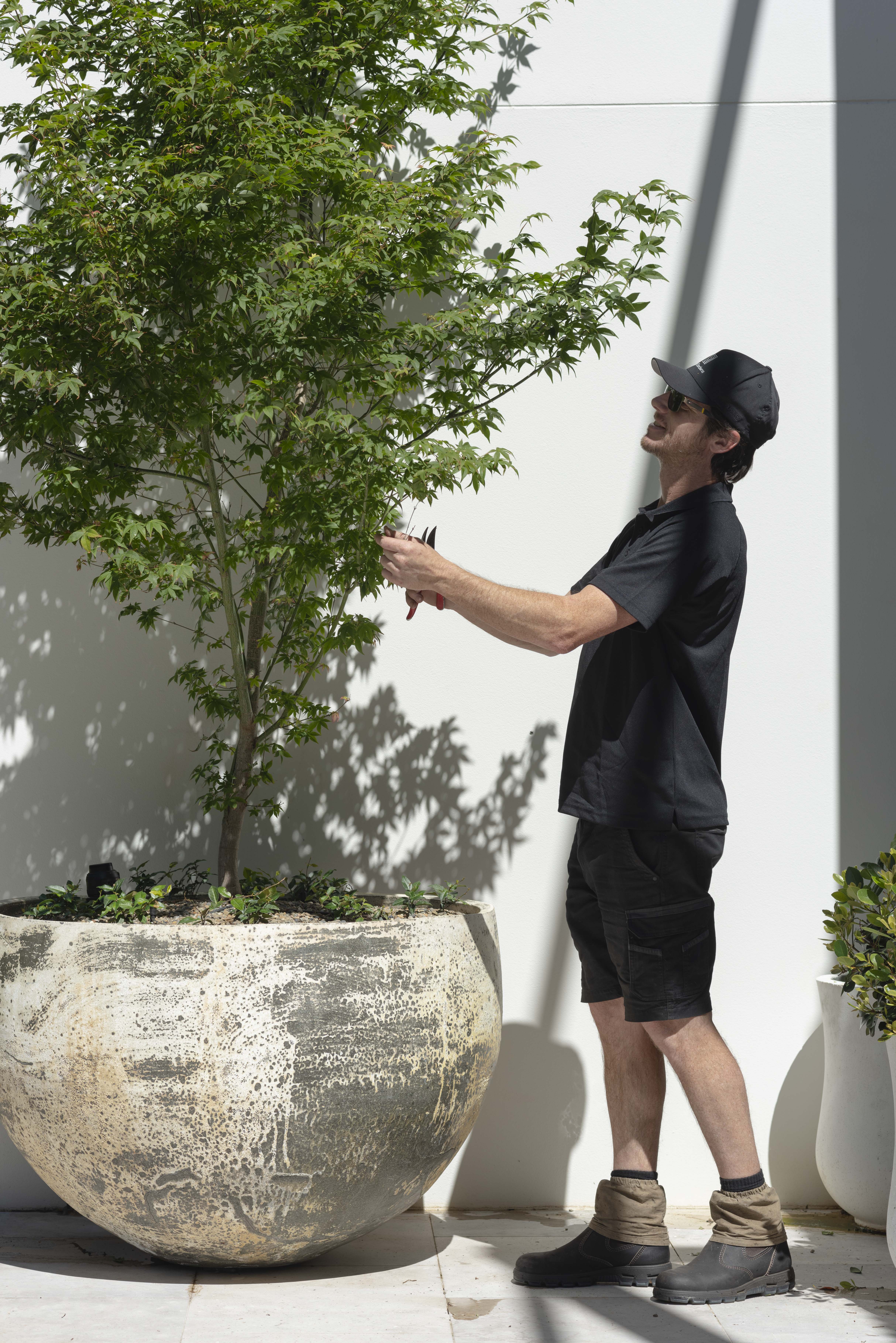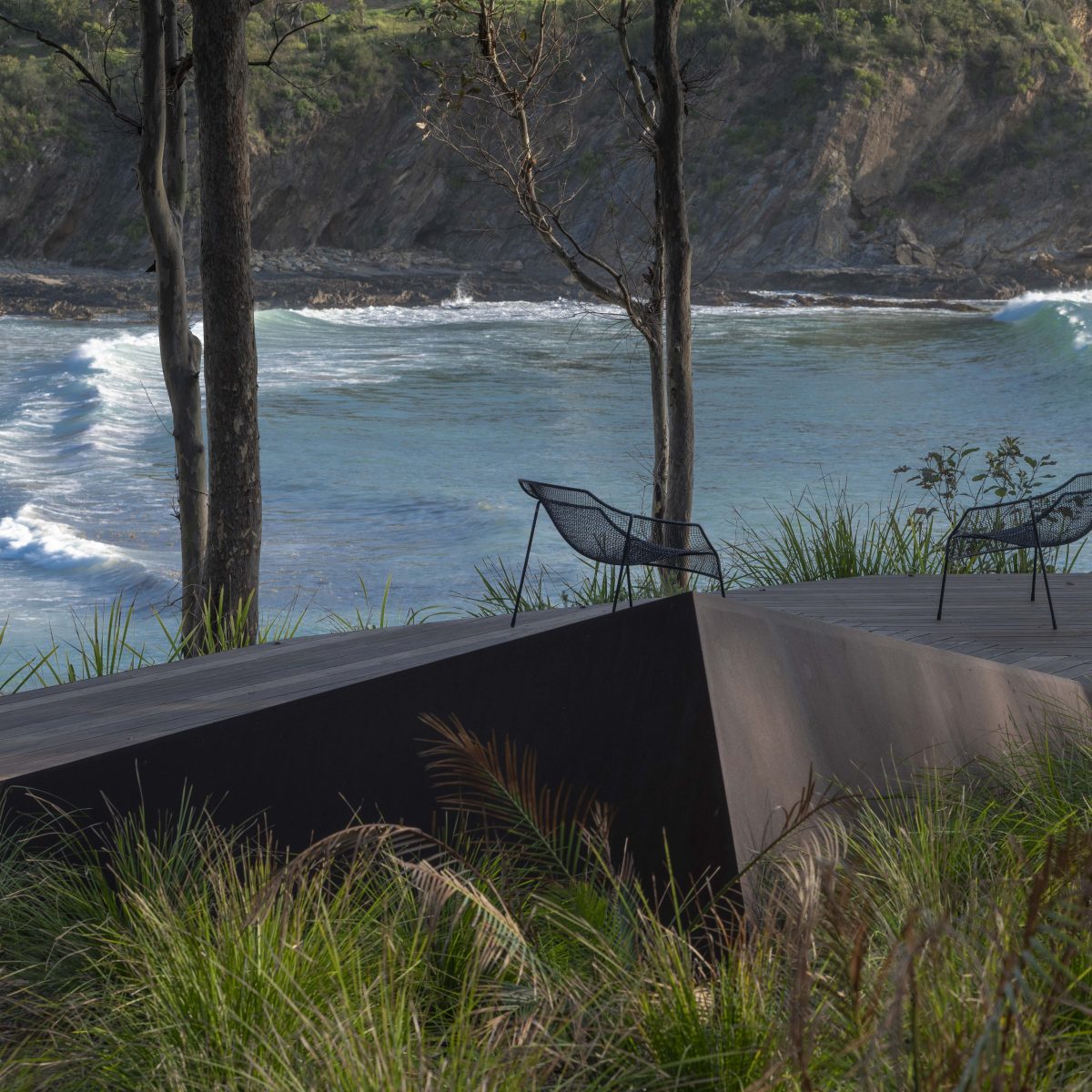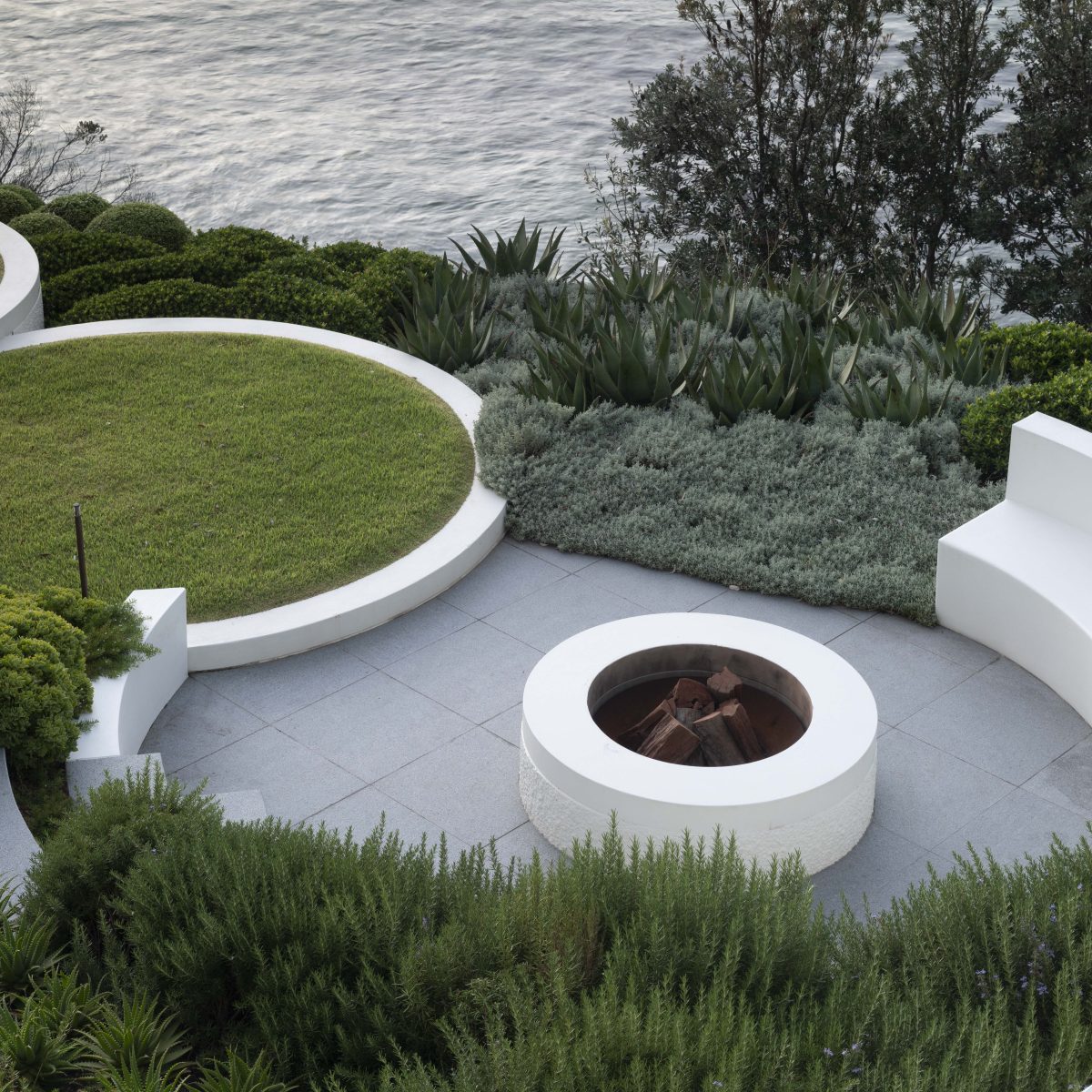Secret Gardens employs people with a range of skills, who each contribute to the creation of beautiful and functional gardens for our clients. These include landscape architects, landscape designers, landscape construction and horticulturists. To better understand what each profession brings to the practice, we are delving into their workday and finding out what makes them tick.
Aaron has the job of caring for the gardens of our Secret Gardens clients. We caught up with Aaron, to discuss his role within the horticultural team.
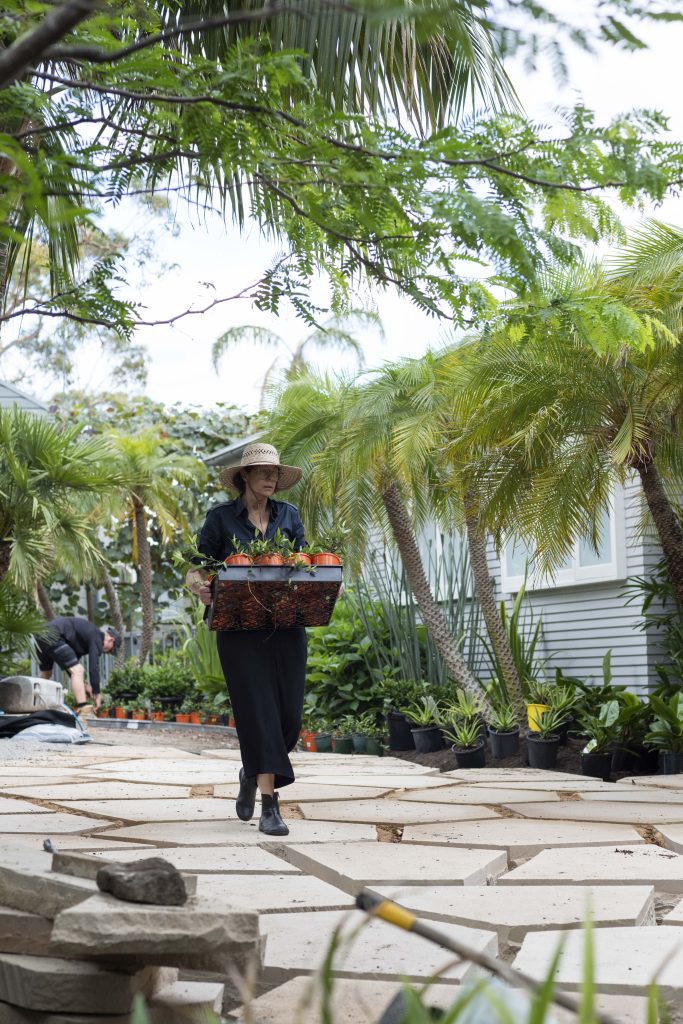
Q What got you interested in a career as a gardener? What courses did you pursue?
I was always interested in plants and that interest grew when I got a job doing garden horticultural care. I took it on as a necessity in a way and as I worked, I fell in love with garden design. The idea of creating a garden rather than pruning things for the sake of it appealed. I headed to TAFE where I did a Certificate 3 course. That led me here and I’ve worked with Secret Gardens for two years.
Q When do you get involved with a garden?
I am there with a new garden at handover – when the garden is complete, and we are moving into care and maintenance. I walk through the garden with the designer my offsider and our horticultural manager and every single aspect of it will be explained. We get their creative vision for the garden and how it will develop over the next two, three, five years. We discuss each plant and how they want it to behave – whether it’s loose or tightly clipped for example. I bounce off the designer as they have the vision, and I am trying to make it work. Gardens are always evolving!
Q What would your average day involve?
I like to start with a pre-sunrise coffee followed by a walk through the garden at the first job of the day. Usually, we’ll walk through and observe the garden before prioritising tasks. I also take a quick scan through past garden notes from the designer to see what they want to achieve with the garden or certain plants. In some gardens, it can just be keeping it the way it is but with other gardens, it can be making drastic changes such as carrying out pruning to create different heights. We also deal with day-to-day garden tasks such as applying fertiliser, managing any pests, and those routine jobs that pop up in gardens.
“I enjoy being responsive to my surroundings and having to pay attention to the weather and local conditions to be in tune with the day. I need to know when rain is coming or there’s a heatwave on the way and prepare the garden for what’s coming – that’s very rewarding”.
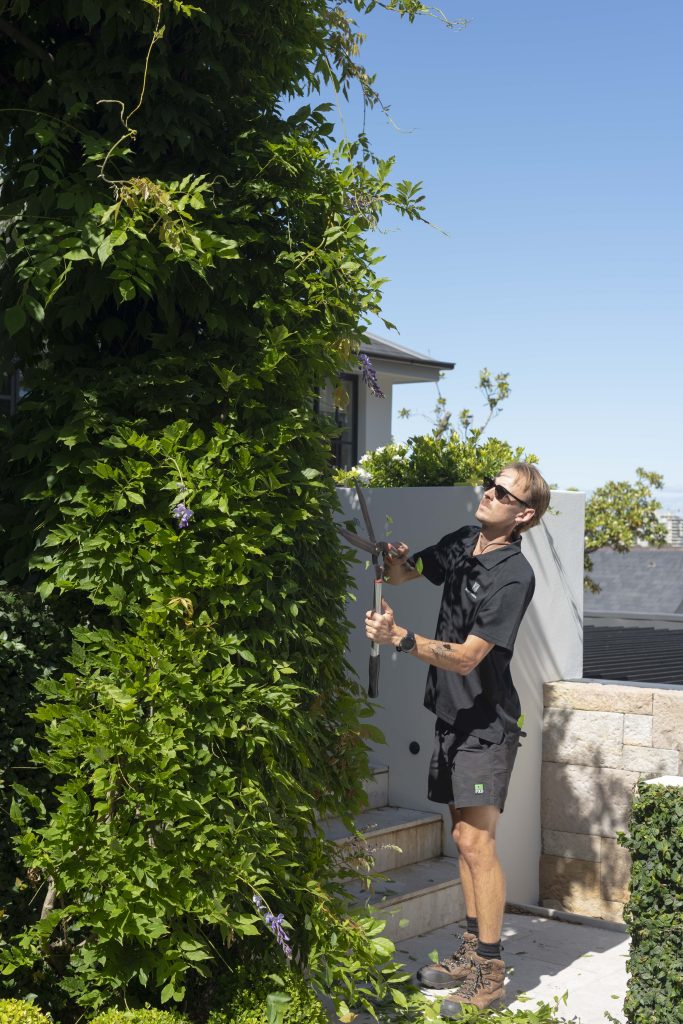
Q How many gardens do you look after and how often would you visit a garden?
I look after around 30-40 gardens but some we are there fortnightly for a full day while others have lower maintenance requirements so I would only visit them every couple of months. My gardening takes me all over Sydney from the Southern Highlands to the Northern Beaches, so I have a wide range of gardens and plants to care for in quite varying climatic conditions. Almost Mediterranean to subtropical and everything in between!
Q What jobs do you really enjoy?
I enjoy pruning and shaping plants and trees. I like the fact you are doing it not for the outcome then and there but for how it is going to look six months to a year down the track, so you have to be mindful of that and have intent in what you are doing. It is not just working whilly-nilly. You are trying to shape something to be natural and loose, so it doesn’t look like it has been pruned. I also like looking at a garden and trying to get layers in it. I enjoy the creative aspect of managing plants. Of course, I also enjoy being in a beautiful garden that’s quiet – there are no other trades there and it is peaceful.
Q Do you have a garden at home?
Yes and no. I’ve just moved from an apartment into my brother’s place and that garden is now my responsibility. But long term, I do aspire to have a garden of my own.
Q What plants you personally enjoy?
I enjoy using natives where possible as they usually require less water. Most of them are quite tough. There’s a bit of a gap in the horticultural world for native plants as some of them can be a bit tricky. The key is to match the right plant to the environment you’ve been given rather than trying to change the environment to grow exotic plants.
Q What about low points?
When plants die especially if you’ve worked with the plant for several years and it dies unexpectedly. Plants can be very sentimental to our clients as it is their garden and their plants so there can be a bit of heartbreak involved if something dies. So, there is also the need to manage clients’ expectations.
Q What are the best parts of your job?
Working with something that’s alive. Plants are something you have to work with and require you to be present – noticing the plant and providing what it needs. It is not like working with an inanimate object like a piece of wood or steel. Also, I enjoy being responsive to my surroundings and having to pay attention to the weather and local conditions to be in tune with the day. I need to know when rain is coming or there’s a heatwave on the way and prepare the garden for what’s coming – that’s very rewarding.
